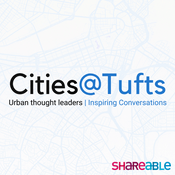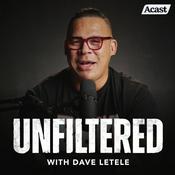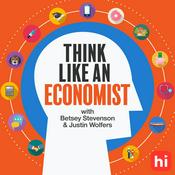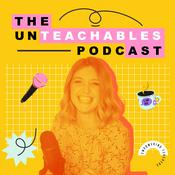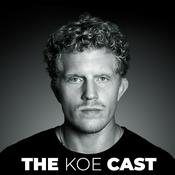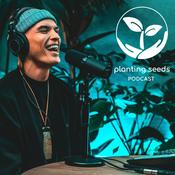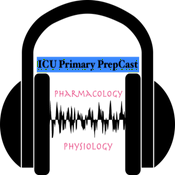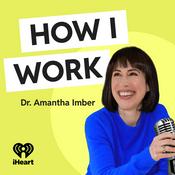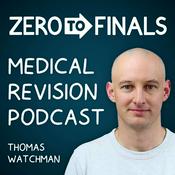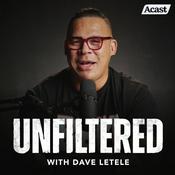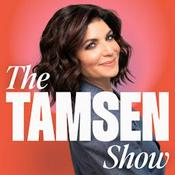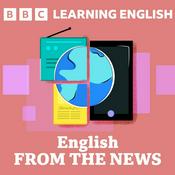71 episodes
Graduate student hunger: Just Us dinners and food resources with Ashanee Kottage
19/12/2025 | 55 mins.The Just Us Graduate Student Dinners emerged from a recognition of the quiet crisis of food insecurity and isolation that many graduate students—especially Global Majority, low-income, first-generation, and international students—experience.
Academia often disembodies students, extracting them from their cultural food traditions and support networks while offering little institutional concern for whether they are nourished in mind and body.
Just Us was conceived with a dual goal: to surface mutual aid networks that already exist among students while also advocating for institutional change to better support graduate student food security. Through shared meals and facilitated conversations, participants will unearth stories of food traditions, articulate their needs, and organize for concrete changes—whether through meal plans, stipends, or alternative food access programs.
By partnering with campus affinity centers and guest facilitators who offer their own food stories as an invitation to dialogue, Just Us seeks to be more than just a meal—it is a movement toward re-rooting students in a sense of belonging, collective care, and food justice advocacy within the university.
About the speaker
Ashanee Kottage is a theater maker, poet, and scholar from Colombo, Sri Lanka, and the founder of Kavaya Press—an artist collective and sustainable publishing home for writers of the Global Majority responding to their environments.
Her debut poetry collection Sand & Sweat traces a coming-of-age across continents, while her academic scholarship explores the journey of coming-of-place. With a degree from Georgetown's School of Foreign Service and a Master's in progress at Tufts in Sustainability, Ashanee approaches community gatherings and art making as both city-scale advocacy and national diplomacy. She is currently based between Boston and Colombo, working on her first film, Lunu Rekha, a meditation on tourism's impact on the south coast of Sri Lanka.
Resources
Cities@Tufts Lectures explores the impact of urban planning on our communities and the opportunities to design for greater equity and justice with professor Julian Agyeman.
Cities@Tufts Lectures is produced by Tufts University and Shareable.net with support from Barr Foundation,
Paige Kelly is our co-producer and audio editor. The original portrait of Ashanee Kottage was illustrated by Jess Milner. The series is co-produced and hosted by Tom Llewellyn.
"Light Without Dark" by Cultivate Beats is our theme song.Defining environmental justice communities when 'equity' is a banned word with Marcos Luna
12/12/2025 | 55 mins.Since the emergence of the Environmental Justice movement, maps have been pivotal tools in revealing patterns of environmental and social inequality, in legitimizing what many communities already knew – that power and oppression shape the landscape of opportunity and risk.
Mapping remains critical to Environmental Justice activism, research, and policy. Maps are often employed as tools of accountability, and as a result, mapping is both a technical and a political act, facing both technical and political challenges.
Within the current political climate, these challenges have been magnified, but they are not new. They are familiar and pernicious obstacles to the larger movement for social justice.
And they share a common root – a resistance to naming and confronting the role of racism and other forms of social and political marginalization that sustain the inequitable landscape of privilege and oppression.
This is a discussion about how that resistance is manifested, how it challenges the task of mapping in environmental justice research and policy, and reflections on what it means to meaningfully engage with environmental justice mapping as a technical and political act.
About the speaker
Professor Marcos Luna joined the Geography and Sustainability Department at Salem State University in 2004. I received my Ph.D. in Urban Affairs and Public Policy with a concentration in Technology, Environment, and Society from the University of Delaware in 2007. I received my M.A. in Geography from California State University, Los Angeles, in 2000. Before coming to Salem State University, I worked as an Environmental Analyst for the Massachusetts Department of Environmental Protection, and before that, as a NASA-funded GIS consultant for Native American tribes in the Southwest and Northwest. I have participated in various health and environmental research and public service projects in Massachusetts, Delaware, and California, as well as at the national level.
Resources
Cities@Tufts Lectures explores the impact of urban planning on our communities and the opportunities to design for greater equity and justice with professor Julian Agyeman.
Cities@Tufts Lectures is produced by Tufts University and Shareable.net with support from Barr Foundation,
Paige Kelly is our co-producer and audio editor. The original portrait of Marcos Luna was illustrated by Jess Milner. The series is co-produced and hosted by Tom Llewellyn.
"Light Without Dark" by Cultivate Beats is our theme song.The Cities We Need: Essential Stories of Everyday Places with Gabrielle Bendiner-Viani
04/12/2025 | 56 mins.Where would you take someone on a guided tour of your neighborhood? In her recent book, The Cities We Need (MIT Press), photographer and urbanist Gabrielle Bendiner-Viani introduces us to the complex, political, and eminently personable stories of residents who answered this question in Brooklyn, New York, and Oakland, California. Their universal stories and Bendiner-Viani's evocative images illuminate what's at stake in our everyday places—from diners to churches to donut shops. In this culmination of two decades of research and art practice, Bendiner-Viani intertwines the personal, historical, and photographic to present us with placework, the way that unassuming places foster a sense of belonging and, in fact, do the essential work of helping us become communities.
In this talk exploring her unique book, Bendiner-Viani makes visible how seemingly unimportant places can lay the foundation for a functional interconnected society, so necessary for both public health and social justice. The Cities We Need explores both what we gain in these spaces and how we risk losing both our senses of self and our democracy as they are threatened by gentrification, large-scale development, public health threats, and climate change. Ultimately, Bendiner-Viani shows us how to understand ourselves as part of a shared society, with a shared fate; she shows us that everyday places can be the spaces of liberation in which we can build the cities we need.
More about The Cities We Need
More about Gabrielle's work and her practice, Buscada
About the speaker
Dr. Gabrielle Bendiner-Viani is a writer, artist, and cofounder of the interdisciplinary studio on place and dialogue, Buscada. She is the author of The Cities We Need: Essential Stories of Everyday Places (MIT Press, 2024) and Contested City: Art and Public History as Mediation at New York's Seward Park Urban Renewal Area (University of Iowa Press, 2019), a finalist and honoree for the MAS Brendan Gill Award. A widely exhibited photographer, she was a professor of urban studies at the New School for a decade and has been a fellow at both the International Center of Photography in New York and the Centre for Urban Community Research at Goldsmiths, University of London. She holds a doctorate in environmental psychology from the Graduate Center, CUNY.
Resources
Cities@Tufts Lectures explores the impact of urban planning on our communities and the opportunities to design for greater equity and justice with professor Julian Agyeman.
Cities@Tufts Lectures is produced by Tufts University and Shareable.net with support from Barr Foundation,
Paige Kelly is our co-producer and audio editor. The original portrait of Dan O'Brien was illustrated by Jess Milner. The series is co-produced and hosted by Tom Llewellyn.
"Light Without Dark" by Cultivate Beats is our theme song.The Pointillistic City: Well-Being and Equity in Communities and their Places with Dan O'Brien
24/10/2025 | 55 mins.The Pointillistic City extends the classic observation that "neighborhoods matter" for health and well-being, arguing that we need to pay more attention to the other geographic scales that we live at—including streets within neighborhoods and even properties within streets—and how they each affect us. This is analogous to a pointillistic painting, which is similarly organized into dots within objects and objects within a full image. This "pointillistic perspective" surfaces microspatial inequities, or disparities between people living in the same neighborhood, as a pressing and overlooked concern for our science, policy, and practice. The book illustrates this perspective through two civic research projects: one on the impact of problem properties on public safety; and the other on the pertinence of "urban heat islets" and other hyperlocal hazards to environmental justice. It ends with guidance for designing policies and practices that address microspatial inequities, with an emphasis on putting cutting-edge data in the hands communities.
About the speaker
Dr. Dan O'Brien is Professor of Public Policy and Urban Affairs and Criminology and Criminal Justice at Northeastern University and Director of the Boston Area Research Initiative (BARI). His research focuses on equity in urban neighborhoods, including crime, environmental justice, and more. His three books, The Urban Commons (Harvard University Press; 2018), Urban Informatics (Chapman Hall / CRC Press; 2022), and The Pointillistic City (MIT Press; 2024), demonstrate the value of integrating data-driven science with community-oriented policy and practice.
Resources
Cities@Tufts Lectures explores the impact of urban planning on our communities and the opportunities to design for greater equity and justice with professor Julian Agyeman.
Cities@Tufts Lectures is produced by Tufts University and Shareable.net with support from Barr Foundation,
Paige Kelly is our co-producer and audio editor. The original portrait of Dan O'Brien was illustrated by Jess Milner. The series is co-produced and hosted by Tom Llewellyn.
"Light Without Dark" by Cultivate Beats is our theme song.Freedom Farmers: Agricultural Resistance and Institution Building with Monica White
09/10/2025 | 52 mins.Dr. Monica M. White presented Freedom Farmers: Agricultural Resistance and Institution Building." The presentation provided context for understanding agriculture as a strategy of resilience and resistance for African Americans. It will offer a perspective of the labor and commitment to agriculture from those in southern Black rural communities to those building community-based food systems in urban spaces.
About Monica White
Dr. Monica M. White is the Distinguished Chair of Integrated Environmental Studies, associate professor of environmental justice at the University of Wisconsin-Madison, and past president of the board of directors for the Detroit Black Community Food Sovereignty Network. She is the first Black woman to earn tenure in both the College of Agricultural Life Sciences (established 1889) and the Nelson Institute of Environmental Studies (established 1970), to which she is jointly appointed. As the founding director of the Office of Environmental Justice and Engagement (OEJ) at UW-Madison, Dr. White works toward bridging the gap between the university and the broader community by connecting faculty and students to community-based organizations that are working in areas of environmental/food/land justice toward their mutual benefit. Her research investigates Black grassroots organizations that are engaged in the development of sustainable, community-based food systems as a strategy to respond to issues of hunger and food inaccessibility. In collaboration with the National Black Food and Justice Alliance, she serves as the Director of the HBCU project that seeks to develop agroecology centers at 1890-land grant institutions. She was an Andrew Carnegie Fellow for 2022-2024 and received the 2024 Distinguished Career for the Career Award in the Service of Sociology from the American Sociological Association.
Dr. White's first book, Freedom Farmers: Agricultural Resistance and the Black Freedom Movement (University of North Carolina Press, 2019) received the First Book Award from the Association of Association for the Study of Food in Society, the Eduardo Bonilla-Silva Outstanding Book Award from the Division of Race and Ethnic Minorities Section of the Society for the Study of Social Problems, and an Honored Book Award from the Gendered Perspectives section of the Association of American Geographers.
In addition to this audio, you can read the full transcript of the conversation and watch the lecture recording on Shareable.net—while you're there get caught up on past lectures.
Cities@Tufts Lectures explores the impact of urban planning on our communities and the opportunities to design for greater equity and justice with professor Julian Agyeman.
Cities@Tufts Lectures is produced by Tufts University and Shareable.net with support from Barr Foundation,
Paige Kelly is our co-producer and audio editor. The original portrait of Monica White was illustrated by Jess Milner, and the series is co-produced and hosted by Tom Llewellyn.
"Light Without Dark" by Cultivate Beats is our theme song.
More Education podcasts
Trending Education podcasts
About Cities@Tufts Lectures
Tufts University and Shareable.net present Cities@Tufts, a free series exploring community innovations in urban planning. The live discussions are moderated by professor Julian Agyeman and the podcast is hosted by Shareable's Tom Llewellyn.
The sessions will focus on topics such as Environmental justice vs White Supremacy in the 21st century; Sacred Civics: What would it mean to build seven generation cities; Organizing for Food Sovereignty; From Spatializing Culture to Social Justice and Public Space; Exploring Invisible Women Syndrome; The Introduction of Street Trees in Boston and New York; Design principles for the urban commons; and The Past, Present, and Future State of Cities.
Podcast websiteListen to Cities@Tufts Lectures, Begin Again with Davina McCall and many other podcasts from around the world with the radio.net app

Get the free radio.net app
- Stations and podcasts to bookmark
- Stream via Wi-Fi or Bluetooth
- Supports Carplay & Android Auto
- Many other app features
Get the free radio.net app
- Stations and podcasts to bookmark
- Stream via Wi-Fi or Bluetooth
- Supports Carplay & Android Auto
- Many other app features


Cities@Tufts Lectures
Scan code,
download the app,
start listening.
download the app,
start listening.
